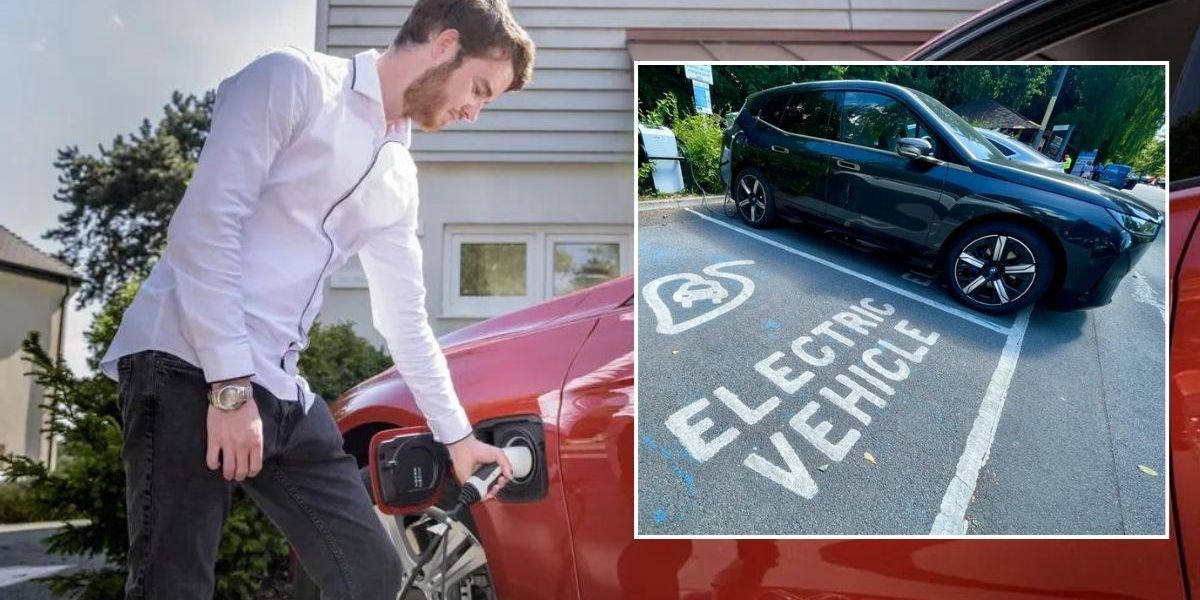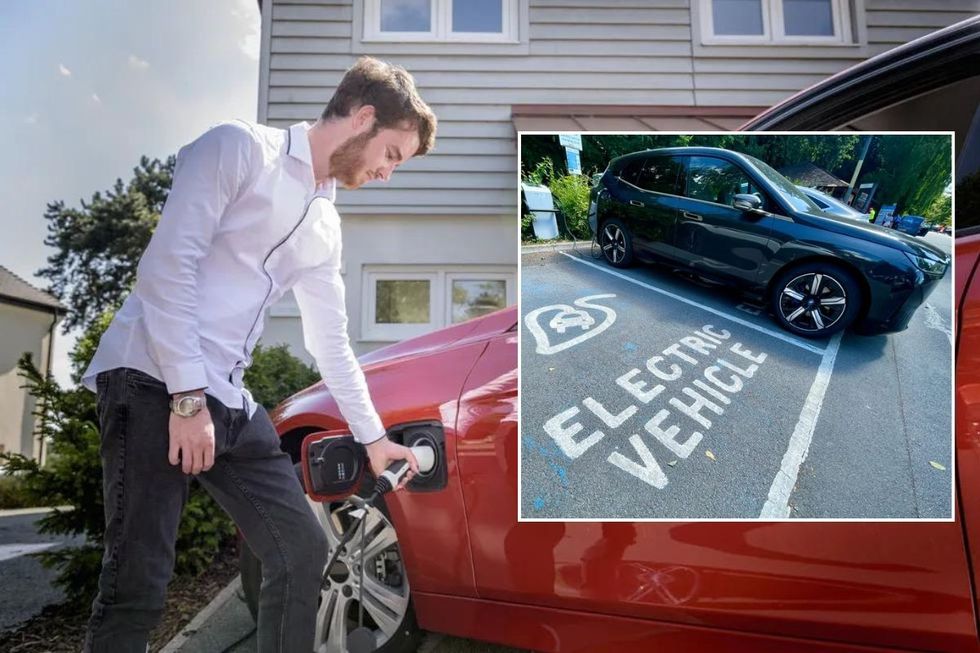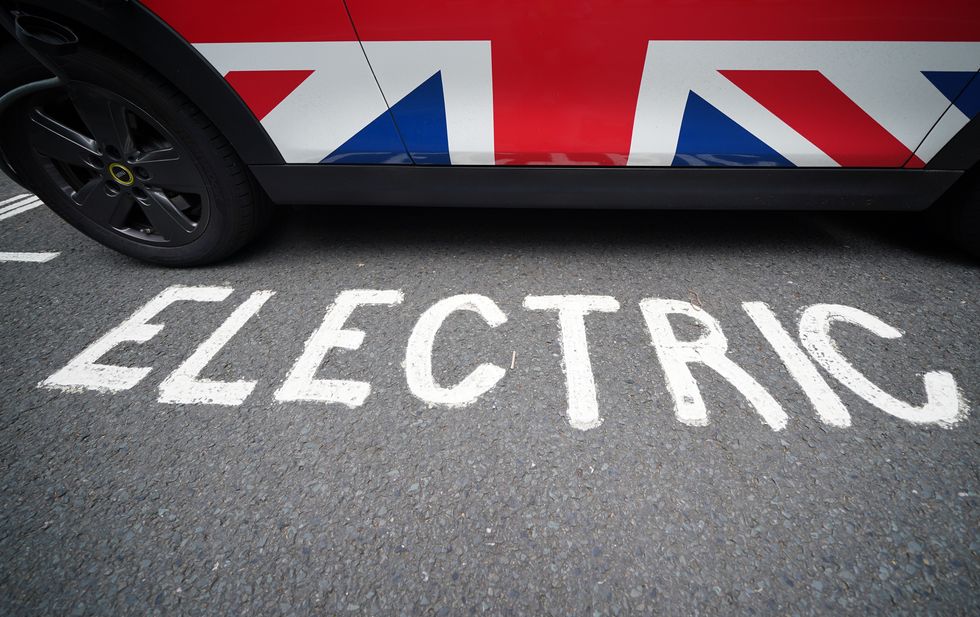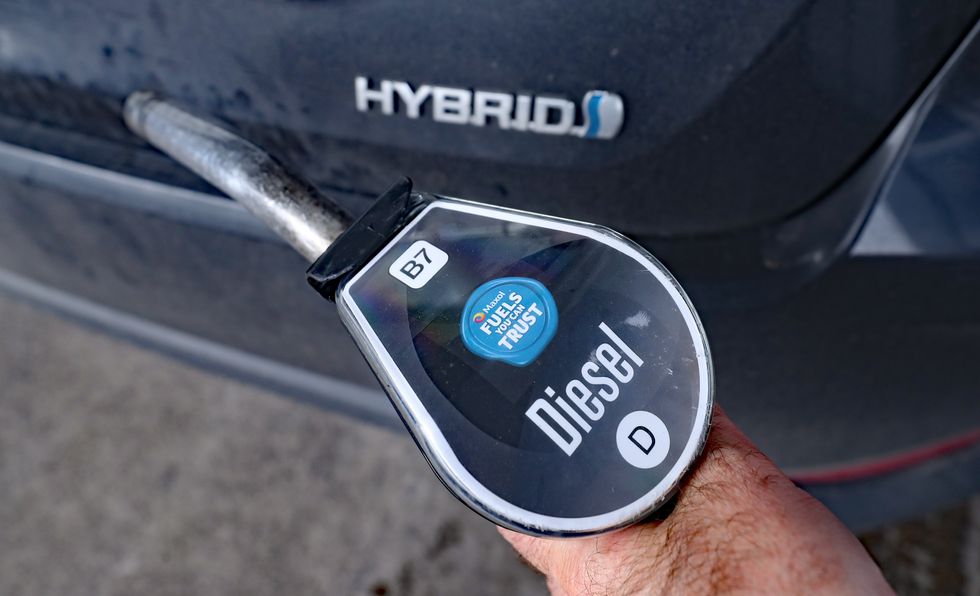



Electric vehicles now represent more than one in 20 car miles driven across Britain, marking a significant milestone in the nation's shift towards greener transport.
It comes after new analysis from the RAC Foundation revealed that zero emission cars accounted for 5.3 per cent of all car mileage by the end of 2024.
This figure has been found to be particularly striking given that electric vehicles comprise just 3.8 per cent of the national car fleet.
The data, based on analysis of more than 1.2 million MOT tests, suggested EV drivers have been covering substantially more miles than their proportion of the vehicle population would indicate.
 GETTY |
GETTY |
One in 20 car miles has been driven by an electric car on UK roads
The findings come as the Government this week unveiled the return of the Electric Car Grant scheme, offering up to £3,750 to buyers of qualifying zero-emission vehicles.
Pure battery electric cars under three years old averaged 10,054 miles annually, according to the RAC Foundation research. This compares with 7,585 miles for petrol cars and 10,728 miles for diesel vehicles in the same age bracket.
The higher mileage figures for electric vehicles have now suggested that they are increasingly being used as primary vehicles rather than secondary cars for short journeys.
The data indicated that EV owners are confident in using their vehicles for longer distances, challenging earlier perceptions about range limitations.
 PA |
PA |
Electric cars now take up more than five per cent of all car mileage in the UK
The shift represents a fundamental change in how electric vehicles are being utilised by British motorists, experts detailed.
Where EVs were once considered suitable mainly for urban commuting, they are now matching or approaching the annual mileage of diesel cars, traditionally favoured for long-distance driving.
Steve Gooding, director of the RAC Foundation, said: "Until recently, new car buyers, often fleets and businesses, have looked to diesels when they've needed something capable of racking up the big miles while still offering reasonable fuel economy.
"Now it seems that fully electric cars are starting to take over where the diesel left off, providing a practical alternative in terms of range and cost per mile, and because of the attractive tax breaks they come with."
Gooding added: "The world where many saw the electric vehicle as being a second-car option, handy only for short trips, is changing rapidly to one where the battery-electric car is being bought to be a workhorse."
The Government's new Electric Car Grant, launched this week, has been backed by £650million in funding through to 2029 and aims to accelerate the transition to sustainable transport.
Transport Secretary Heidi Alexander announced that manufacturers must hold verified science-based targets to qualify.
The scheme assesses emissions from both vehicle assembly and battery production against the carbon intensity of electricity grids in manufacturing countries.
 PA |
PA |
Drivers and businesses have been moving away from diesel cars in favour of electric vehicles due to tax benefits
The initiative could unlock additional savings of up to £1,500 annually in running costs for drivers, making a huge difference.
The Government has announced a broader package of measures to support charging infrastructure expansion. These include £25 million for cross-pavement charging channels and £30 million in grants for chargepoint installation at depots serving vans, coaches and HGVs.
An additional £8million will fund charger installations at NHS sites, with the Department for Transport also permitting EV charging hubs to be signposted from major roads, improving visibility and accessibility for drivers.
The combined public and private sector efforts aim to address infrastructure concerns that have historically deterred some motorists from switching to electric vehicles.
